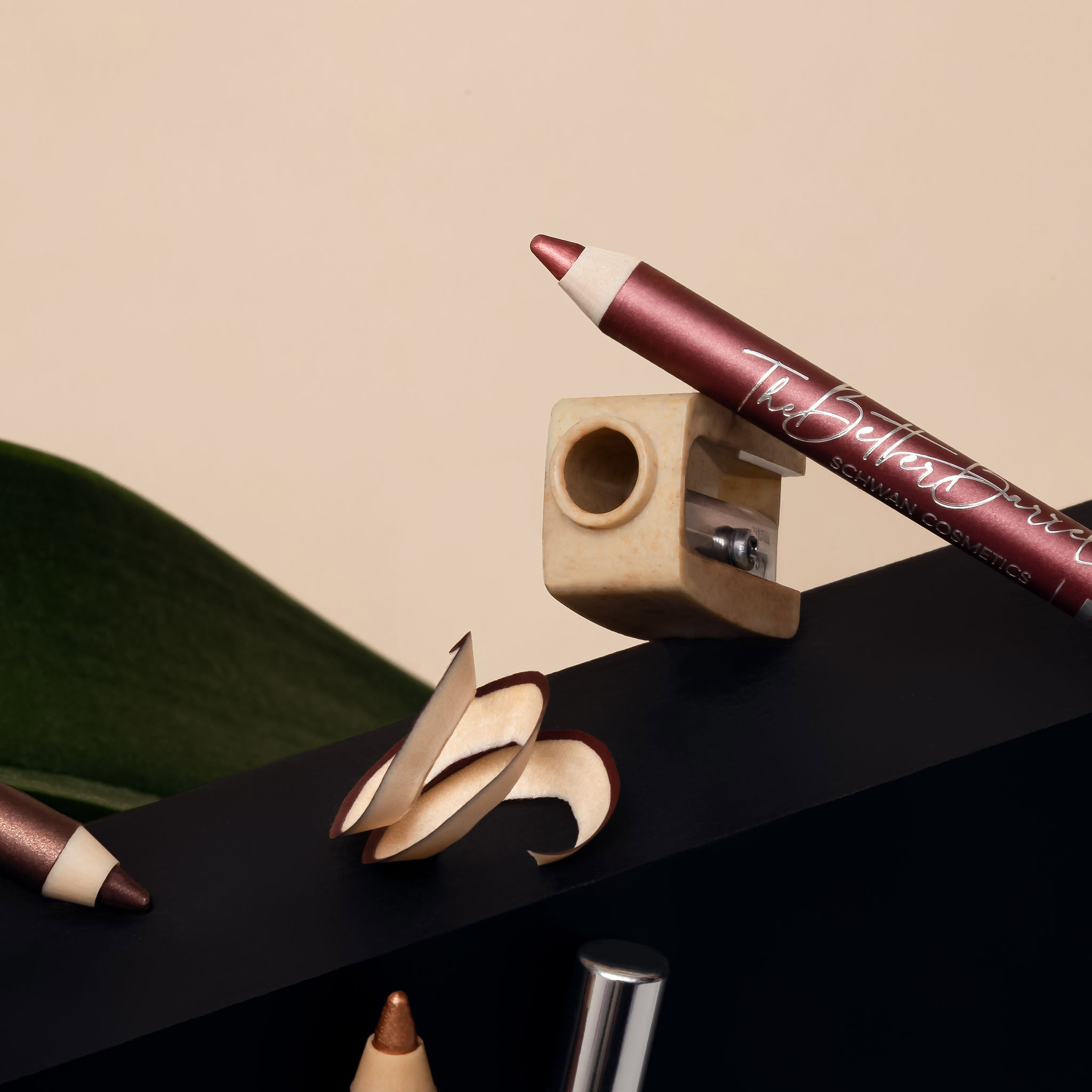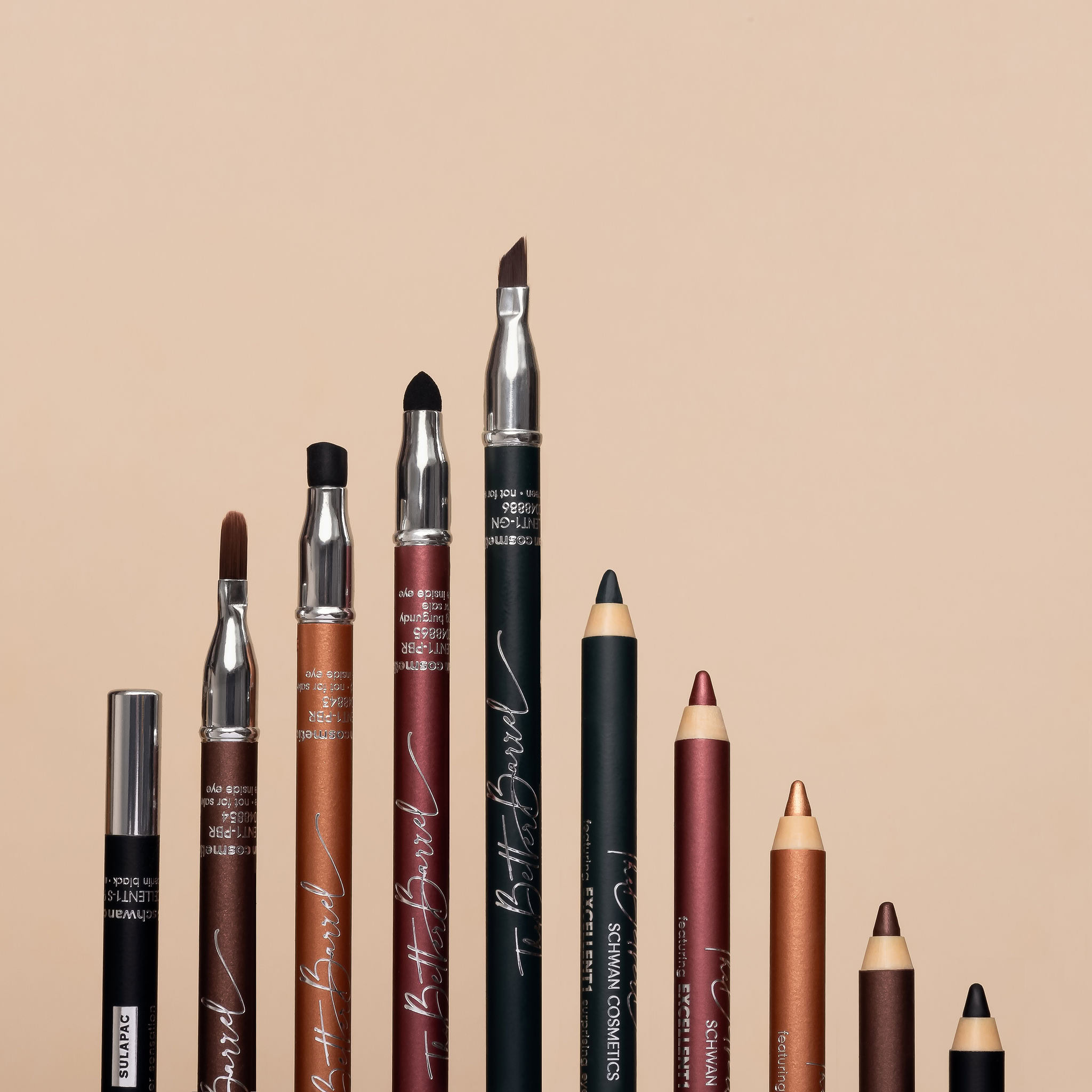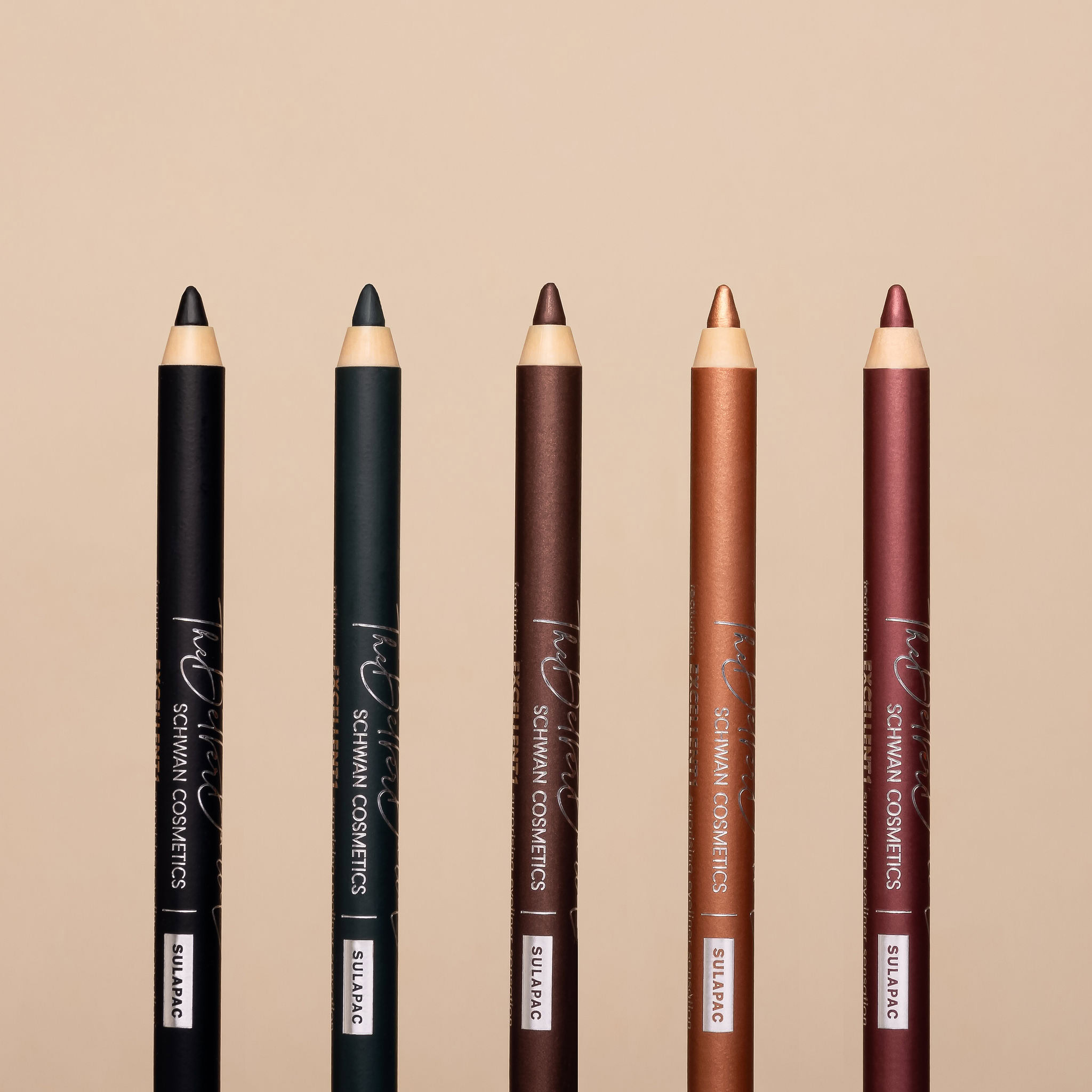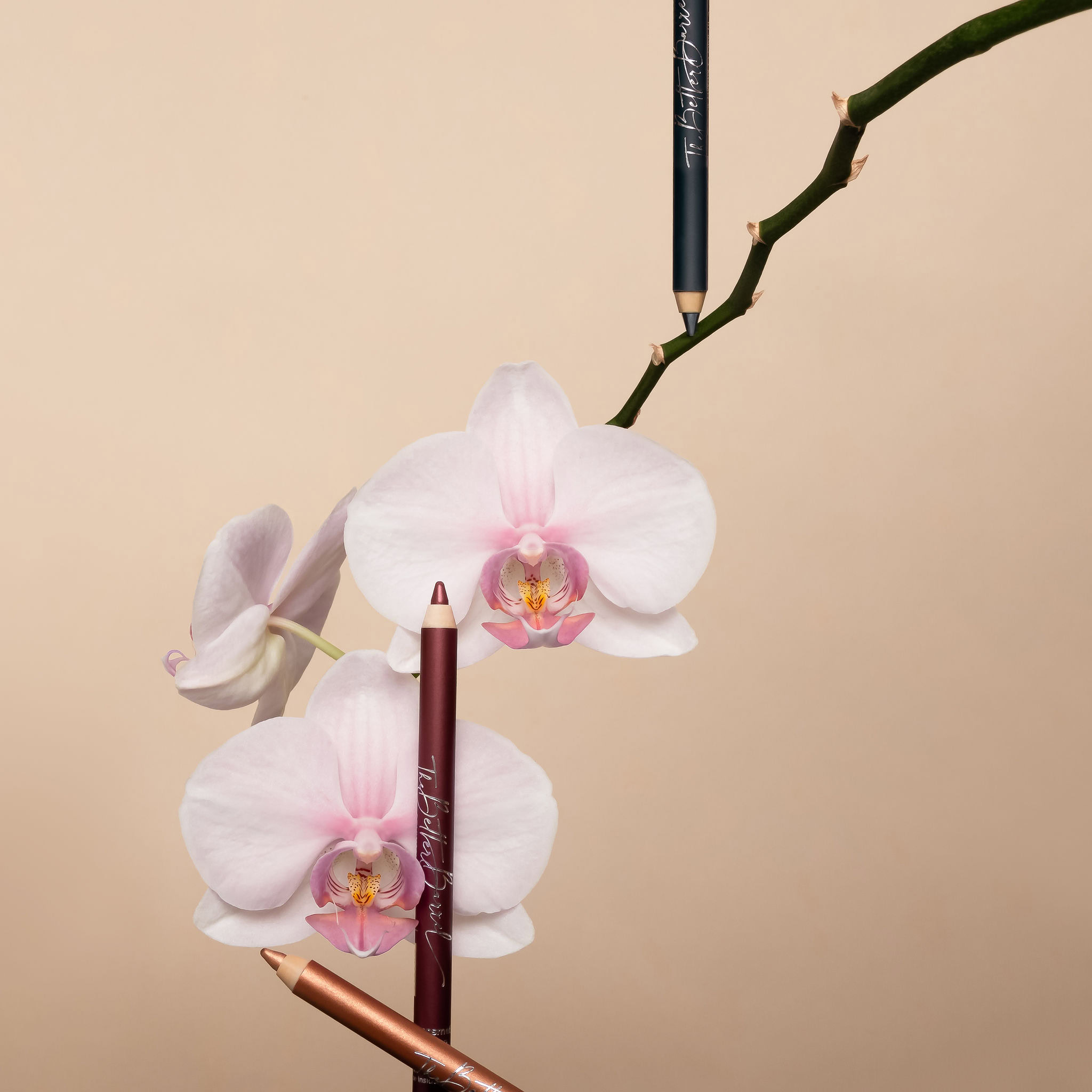The biobased Sulapac Flow 1.8 for cosmetic pencils is unlike any traditional barrel material: it’s sustainable, beautiful, functional – and economically sound. All in one. That’s why some of the world’s leading luxury brands have already switched to Sulapac. Delve into the details and start future-proofing your pencil lines today.
What makes Sulapac a superior material for cosmetic pencils?
Superior functionality
Sulapac Flow 1.8, the next generation barrel material for cosmetic pencils, enables easy sharpening and is compatible with advanced, high-performance formulations.


Easy processability

Environmental friendliness
Thanks to its high biobased content (72%)1, biodegradability2, and low carbon footprint3, Sulapac Flow 1.8 is the choice of environmentally conscious brands.

Uncompromising aesthetics
Sulapac Flow 1.8 cosmetic pencils – adopted by the world’s leading luxury brands – look and feel exactly the same as the ‘original’ versions. The same decoration techniques can be applied with Sulapac Flow 1.8 as with conventional plastic.

Meet your sustainability targets – Switch to Sulapac Flow 1.8
- Sulapac Flow 1.8 is made with FSC certified4 wood flour from industrial side streams.
- It is safe for both people and the planet: The material is certified as industrially compostable5 by BPI and Seedling and leaves no permanent microplastics2 or toxic load behind6.
- With Sulapac Flow 1.7 you can reduce your carbon footprint by approximately 50% compared to styrene based pencil materials.3
- Sulapac Flow 1.8 meets the EU and US FDA requirements for food contact materials.7
Take a step toward a cleaner future, switch to Sulapac today.
1 Sulapac Flow 1.8 contains 72% USDA certified biobased content. USDA Certified Biobased Product label is a certification mark of the U.S. Department of Agriculture.
2 Relative biodegradation of 75,5% in 420 days in simulated marine environment test (ASTM D6691, 86°F / 30°C) using natural sea water. Not considered biodegradable in California.
3 Cradle-to-gate carbon footprint 1,1 kg CO2eq / kg. Based on a screening LCA study performed by an independent third-party consultancy. The results have not yet been critically reviewed. Biogenic
carbon (carbon sequestration) included.
4 FSC® COC Forest Stewardship Council® – Chain of Custody license code: FSC-C158142
5 The compostability has been tested for a film up to the thickness of 910 μm according to BPI (ASTM D6400) and Seedling (EN13423). As compostability is also dependent on the geometry of an item, it is the responsibility of the manufacturer of the end product to ensure compliance with the regulations.
6 Ecotoxicity and threshold values for heavy metals tested according to EN 13432.
7 Restrictions and specifications of use apply, please refer to relevant Declaration of Compliance for further information.
Materials designed like nature
Learn about the Sulapac design practice and the science behind our material features.